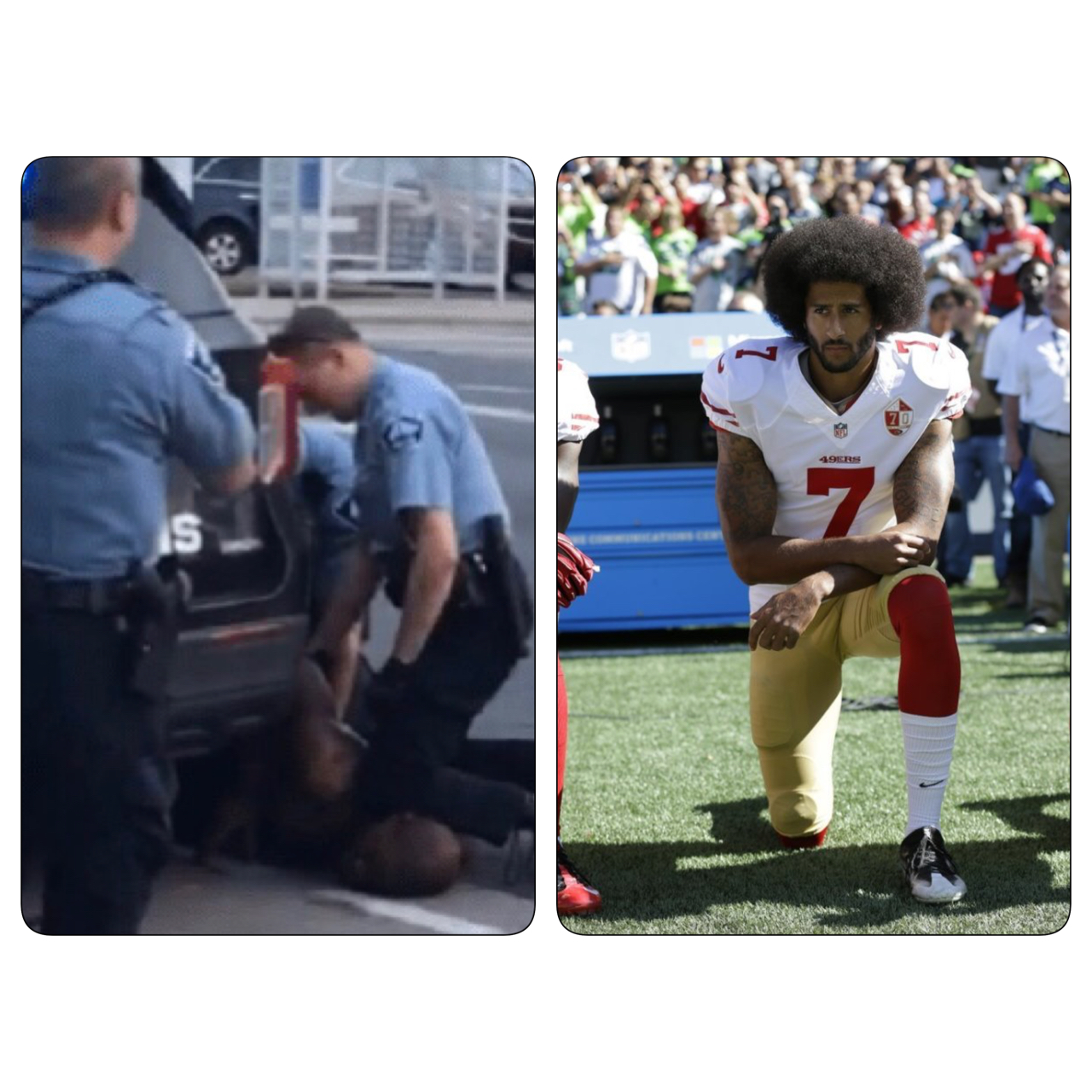As the nation witnessed the home-going of George Floyd, this became the story of two knees.
Colin Kaepernick kneeled on a football field to protest brutality by police officers against unarmed black citizens.
A Minneapolis officer kneeled on the neck of a black man for eight minutes and 46 seconds.
Kaepernick kneeled to save people’s lives and took flack.
Derek Chauvin kneeled on the neck of George Floyd and took a life.
George Floyd had Covid 19 and survived but didn’t survive 8 minutes and 46 seconds of a knee on his neck.
There is no doubt that as one watches the protests around the country and subsequently around the world, you could not help but be encouraged by the protesters’ diversity as they marched in city after city and country after country. Yet the question remains, why it took protests around the country and the world to bring these four officers to account.
Despite Covid-19 putting the world on pause, and rhetoric about being in this together, the pandemic of racism still managed to make its deadly poison felt.
Even as the body of George Floyd was laid to rest, Kentucky Senator Rand Paul was lecturing US Senators as to why he will not support an anti-lynching bill.
The Minneapolis police union head Bob Kroll decried protestors as terrorists and called for stricter action against them.
An American president called for military action against American citizens and has opted for photo-ops at St. John’s Episcopal Church.
Protests are not an American phenomenon; it is a human reaction that transcends ethnicity and nation of origin. Every country in this world has had protests at one time or another, from North America, South America, Africa to Europe.
Nonetheless, the temptation is to think that because all of the officers have been arrested and charged, victory should be declared, and the protesters should go home. After all, everyone wants to get back to normal.
But this is not a protest against a single incident. It is a protest against a structural virus which has been present in the American system for centuries. Countless lives have been taken including George Floyd, Breonna Taylor, Ahmad Arbery, Botham Jean, and even Trayvon Martin, among many others.
The protests have been a source of discomfort, but as the fictional character Mr. Dooley said, we must “comfort the afflicted and afflict the comfortable.”
Yes, a spike in new Covid infections is a significant concern, given the proximity of protesters to each other.
Those seeking justice will be told when and where it is appropriate to confront the disease of racism.
The nation faces what Thomas Sowell would call “a conflict of visions” On one end, New York Governor Andrew Cuomo has called for a reimagining of society. On the other end of the spectrum, there are those who simply want to go back to the way things used to be.
The protesters are calling for people to reimagine our society. Those who have marched and protested for justice should be proud of these protesters. Those who choose to complain about the protesters have become closet allies of a system that has oppressed people for centuries. They should remember the words of Dr. King, “the hottest place in hell is reserved for those who remain neutral in times of moral conflict.”
It is an uncomfortable time, and it will call for some uncomfortable discourse. One question is when will the humanity of black people and black males in particular be fully recognized.
There will be some who will espouse the fall back position that police have a formidable job and they should be supported. As true as that may be, it is also true of military personnel. Just think of William Calley, who was convicted by court-martial for killing South Vietnamese civilians during the Vietnam war. If the army does not tolerate this malicious behavior, neither should citizens accept it from the police.
Unfortunately, the narrative of having a tough job has given rise to police engaging in the too-often used refrain “I thought my life was in danger” even from unarmed people that were running away.
The nation has given space to discuss the hardships that have arisen from the COVID-19 pandemic. Perhaps now is the time to provide space to discuss the vestiges of racism in general and police misconduct in particular.
